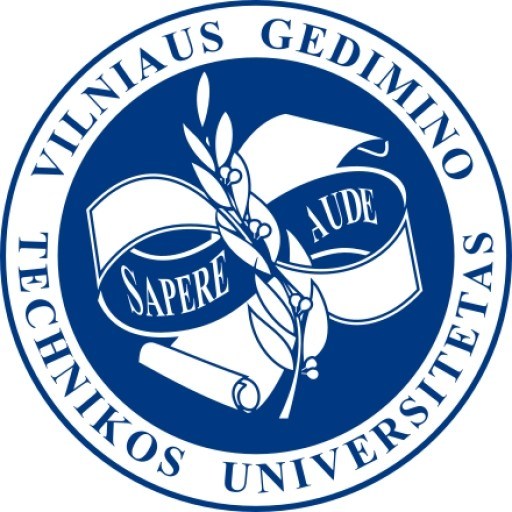Photos of university / #universitycollegedublin
Energy Systems Engineering at University College Dublin is a comprehensive postgraduate programme designed to equip students with the knowledge and skills necessary to tackle the complex challenges of energy production, distribution, and management in today's sustainable and technologically advanced world. This programme offers a multidisciplinary curriculum that combines principles of electrical, mechanical, and energy engineering, emphasizing practical application and innovative solutions within the energy sector. Students will explore topics such as renewable energy technologies, energy conversion systems, power system analysis, energy policy and economics, and sustainable development. The programme is structured to foster both theoretical understanding and hands-on experience through laboratory work, project-based learning, and industry collaborations. Graduates will be prepared for a variety of roles in energy companies, consulting firms, research institutions, and government agencies, contributing to the development of efficient, reliable, and environmentally responsible energy systems. The programme also encourages critical thinking about future energy challenges and opportunities, cultivating a mindset oriented towards innovation and sustainability. Delivered by experienced faculty members with industry backgrounds, the programme benefits from UCD's strong links with industry stakeholders and research centres, ensuring that students are exposed to current trends and practical insights. Upon completion, students will possess a solid foundation in energy systems engineering, complemented by the analytical skills needed for strategic decision-making and problem-solving in the energy sector. This MSc programme is ideal for engineering graduates seeking to specialize in energy systems, as well as for professionals aiming to advance their careers in this dynamic field. Whether aiming to work on renewable integration, smart grids, or energy policy development, graduates of this programme will be well-equipped to contribute effectively to the global transition to sustainable energy solutions.
First Year
All DN150 students follow a common first year which includes modules in:
- Physics
- Chemistry
- Mathematics
- Energy Engineering
- Mechanics
- Electrical/Electronic Engineering
- Creativity in Design
Second to Fifth Year
Sample modules for Energy Systems Engineering students include:
- Mechanics of Fluids
- Electrical and Electronic Circuits
- Engineering Thermodynamics
- Electrical Energy Systems
- Power System Engineering
- Air Pollution
- Measurement and Instrumentation
- Energy Systems & Climate Change
- Wind Energy
- Energy Economics
- Power System Operation
- Energy Systems in Buildings
A student’s week includes attending lectures and tutorials as well as participating in laboratory-based workshops and undertaking independent study.
Academic Entry Requirements
UCD requires Certificate of Secondary (Complete) General Education (grade 11) + 1 or 2 years of a Bachelor Degree (minimum average ≥ 3) at a recognised university.
English Language Requirements
Teaching in Irish Universities is normally through the medium of English, therefore all applicants are required to demonstrate a high level of competence in English language. Applicants must provide evidence of equivalent competence in English language through a recognised English language test, as outlined below.
Please note:
- Your English language certificate must be no more than two years old at the beginning of your degree course.
- Other evidence of proficiency in English may be accepted.
UCD recognise the appropriate minimum score in the following recognised English Language Examinations:
International English Language Testing System (IELTS)
- An average score of 6.5 over all components and a minimum of 6.0 in each band on the Academic Version.
Test of English as a Foreign Language (TOEFL) administered by Princeton University
- A minimum score of 600 in the paper-based Test of English as a Foreign Language (TOEFL PBT), with Test of Written English at 475 +.
- In the computer based TOEFL, a minimum score of 250 is required.
- A minimum score of 90 is required in the Internet based based TOEFL (iBT).
The financing options for the Energy Systems Engineering program at University College Dublin encompass a range of funding sources aimed at supporting both domestic and international students. Tuition fees vary depending on the student's residency status, with Irish and EU students benefiting from subsidized rates, whilst non-EU students are subject to higher fees. To assist with the financial burden, students can apply for various scholarships and bursaries offered by UCD based on academic merit or financial need. The university also participates in national scholarship schemes, providing opportunities for students to receive funding that can offset tuition costs.
In addition to scholarships, students might consider educational loans available through financial institutions in Ireland, which facilitate repayment over time after graduation. Part-time work opportunities on campus, such as research assistantships or administrative roles, are accessible for students seeking supplementary income, subject to visa regulations for international students. UCD's Student Funding and Financial Aid Office provides comprehensive guidance to prospective and current students on available financial assistance, application procedures, and eligibility criteria.
Furthermore, some students may access funding through government initiatives, such as the Irish government-backed Student Support scheme, or through European funding programs, especially for international students from the EU. International students are encouraged to explore specific scholarship programs aimed at attracting global talent, which may cover partial or full tuition fees. The university also offers payment plans that allow students to spread the cost of tuition over multiple installments.
Overall, there is a robust infrastructure within UCD to help students manage the costs associated with studying Energy Systems Engineering, ensuring that financial considerations do not hinder access to high-quality education.
Energy Systems Engineering at University College Dublin is a comprehensive postgraduate program designed to equip students with the technical knowledge and practical skills necessary to address the global challenges related to energy production, management, and sustainability. The program emphasizes engineering principles, renewable energy technologies, and innovative solutions for efficient energy systems. Students engage in coursework covering topics such as thermodynamics, power generation, energy conversion, electrical systems, and energy policy. The curriculum is tailored to foster critical thinking and problem-solving abilities, preparing graduates for careers in energy consultancy, renewable energy project development, power plant operation, and energy policy advisory roles.
The program is typically delivered through a combination of lectures, laboratory work, project-based learning, and industry collaborations. It aims to provide a solid foundation in both theoretical concepts and practical applications, ensuring graduates are well-equipped to contribute to the evolving energy sector. Students have opportunities to participate in research projects and work with leading industry partners, gaining valuable hands-on experience. The program also emphasizes sustainable practices and the integration of renewable energy sources such as wind, solar, bioenergy, and hydropower into existing energy systems.
Admission requirements generally include a relevant undergraduate degree in engineering, physical sciences, or related fields, along with proficiency in English. The program is suitable for recent graduates as well as experienced professionals seeking to deepen their expertise in energy systems engineering. Graduates of the program can pursue careers in various sectors including energy utilities, environmental consultancy, government agencies, and private industry.
University College Dublin supports students' professional development through various academic and career services, and many graduates find employment within six months of completing their studies. The program also offers opportunities for further research or PhD studies in energy-related disciplines. Overall, Energy Systems Engineering at UCD aims to produce innovative engineers capable of developing sustainable and efficient energy solutions to meet the world's future energy demands while minimizing environmental impact.








